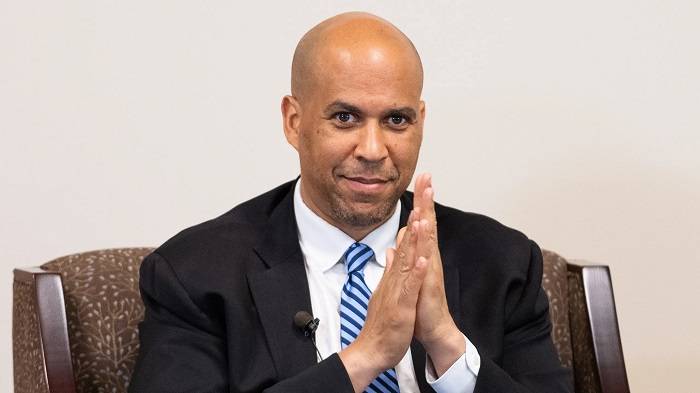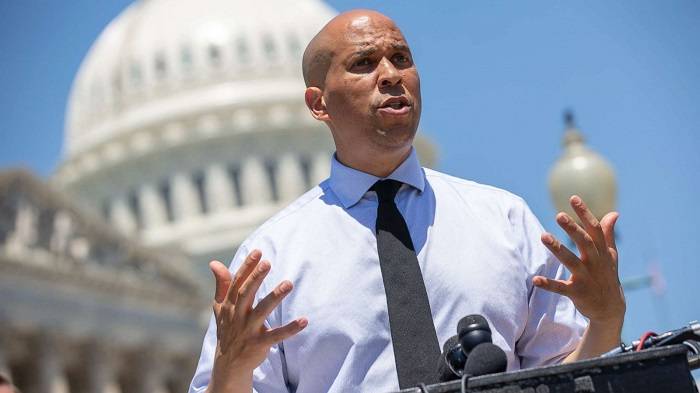Cory Booker, a prominent figure in American politics, has made significant strides in both local and national spheres. Known for his dynamic approach to leadership and dedication to public service, Booker’s career has been marked by a focus on progressive policies, innovative strategies, and a commitment to improving the lives of his constituents. This comprehensive guide explores his political strategies, evaluates his performance, and examines the benefits of his leadership style.
Early Life and Political Rise
Cory Booker was born on April 27, 1969, in Washington, D.C., and raised in Harrington Park, New Jersey. The son of civil rights activists, Booker’s upbringing was deeply rooted in a sense of justice and community service. He attended Stanford University, where he earned a Bachelor of Arts in Political Science and a Master of Arts in Sociology. Booker later attended Yale Law School, where his passion for social justice was further solidified.
After completing his education, Booker moved to Newark, New Jersey, where he began his political career. He served on the Newark City Council from 1998 to 2002, gaining a reputation as a reform-minded leader dedicated to revitalizing the city. His efforts eventually led to his election as the Mayor of Newark in 2006, a position he held until 2013.
Strategies for Political Success
Cory Booker’s political strategies have been shaped by his experiences in Newark and his commitment to progressive change. His strategies can be broken down into several key areas:
- Community Engagement: From his early days on the Newark City Council, Booker has emphasized the importance of community engagement. He believes that effective governance requires a deep understanding of the needs and concerns of constituents. As mayor, he was known for his hands-on approach, often attending community meetings and walking the streets to speak directly with residents.
- Innovation and Technology: Booker has been a strong advocate for leveraging technology to improve government transparency and efficiency. During his tenure as mayor, he introduced several tech-based initiatives to address issues like crime and public safety. One notable example was the introduction of a city-wide surveillance system to monitor crime hotspots, which helped reduce crime rates in Newark.
- Bipartisanship and Collaboration: Despite his progressive stance, Booker has often reached across the aisle to find common ground with Republicans. He believes that lasting change can only be achieved through collaboration and has worked with both parties on various initiatives, such as criminal justice reform and economic development.
- Focus on Economic Development: Booker has consistently prioritized economic development as a means to lift communities out of poverty. As mayor, he attracted several large companies to Newark, creating jobs and stimulating economic growth. His focus on economic development continued into his role as a U.S. Senator, where he has advocated for policies that promote entrepreneurship and small business growth.
- Advocacy for Social Justice: Rooted in his background and personal values, Booker has been a vocal advocate for social justice. He has championed issues such as criminal justice reform, affordable housing, and access to education. His work in these areas has aimed to address systemic inequalities and create more equitable opportunities for all Americans.
Performance as Mayor of Newark
Cory Booker’s performance as mayor of Newark is often cited as a turning point in the city’s history. Under his leadership, Newark saw several key improvements:
- Crime Reduction: One of Booker’s primary focuses as mayor was to reduce crime in Newark, which had one of the highest crime rates in the country. Through the implementation of data-driven policing strategies and the introduction of new technologies, the city experienced a significant decline in violent crime. Booker’s initiatives were credited with reducing Newark’s murder rate by nearly 40% during his tenure.
- Economic Revitalization: Booker attracted significant investment to Newark, fostering economic revitalization in a city that had long struggled with poverty and unemployment. He facilitated the construction of new housing developments, office spaces, and commercial centers, which helped to create jobs and spur economic growth.
- Education Reform: Education was another area where Booker sought to make a substantial impact. He worked closely with community leaders and philanthropists to bring significant funding to Newark’s public schools. Although his education reform efforts were met with mixed reviews, they demonstrated his commitment to addressing one of the city’s most pressing issues.
- Public Health Initiatives: During his time as mayor, Booker launched several public health initiatives aimed at improving the well-being of Newark residents. These included campaigns to promote healthy living, increase access to nutritious food, and reduce the prevalence of chronic diseases.
Transition to the U.S. Senate
In 2013, Cory Booker transitioned from local to national politics when he was elected to the U.S. Senate. As a senator, Booker has continued to champion the causes he advocated for as mayor, while also expanding his focus to include a broader range of issues. His performance in the Senate has been marked by several key achievements:
- Criminal Justice Reform: Booker has been a leading voice in the Senate on criminal justice reform. He co-sponsored the First Step Act, a bipartisan bill aimed at reducing recidivism and reforming sentencing laws. The bill passed with overwhelming support and was signed into law in 2018, marking a significant victory for Booker and other reform advocates.
- Healthcare Advocacy: Healthcare has been another major focus for Booker in the Senate. He has consistently advocated for expanding access to affordable healthcare and has supported efforts to protect and strengthen the Affordable Care Act. Booker has also been a proponent of Medicare for All, arguing that healthcare is a fundamental human right.
- Environmental Protection: Booker has taken a strong stance on environmental issues, advocating for policies that address climate change and promote sustainability. He has introduced legislation aimed at reducing carbon emissions, protecting public lands, and investing in renewable energy sources.
- Economic Opportunity and Equity: Continuing his focus on economic development, Booker has pushed for policies that promote economic opportunity and equity. He has introduced legislation to support small businesses, increase the minimum wage, and expand access to affordable housing.
Benefits of Booker’s Leadership
Cory Booker’s leadership style and political strategies have brought several benefits to the communities he has served and the broader American public. These benefits include:
- Enhanced Community Engagement: Booker’s emphasis on community engagement has helped to bridge the gap between government and citizens. His hands-on approach has made him a more accessible and responsive leader, fostering a greater sense of trust and collaboration between the government and the people.
- Improved Public Safety: Through his focus on innovative crime reduction strategies, Booker has helped to improve public safety in Newark and advocated for similar reforms at the national level. His work has demonstrated that data-driven, community-focused policing can lead to meaningful reductions in crime.
- Economic Growth and Opportunity: Booker’s commitment to economic development has helped create jobs and stimulate growth in communities that have long been underserved. His focus on entrepreneurship and small business development has provided new opportunities for economic mobility and has contributed to a more dynamic and resilient economy.
- Advancement of Social Justice: Booker’s advocacy for social justice has brought attention to critical issues such as criminal justice reform, healthcare access, and environmental protection. His work has helped to advance policies that promote equity and fairness, making a positive impact on the lives of millions of Americans.
- Bipartisan Collaboration: One of the hallmarks of Booker’s leadership has been his ability to work across party lines. His willingness to collaborate with Republicans on issues like criminal justice reform has helped to break through partisan gridlock and achieve meaningful legislative victories.
Challenges and Criticisms
While Cory Booker’s leadership has brought many benefits, it has not been without its challenges and criticisms. Some of the key criticisms of Booker’s political career include:
- Mixed Results in Education Reform: Although Booker’s efforts to reform Newark’s public schools brought in significant funding and attention, the results were mixed. Some critics argue that the reforms did not lead to the desired improvements in educational outcomes and that they were implemented without sufficient input from the community.
- Perceived Ambition: Booker’s rapid rise in politics and his frequent media appearances have led some critics to accuse him of being overly ambitious and self-promotional. They argue that his focus on national issues has sometimes come at the expense of his local responsibilities.
- Balancing Progressivism with Pragmatism: As a senator, Booker has sometimes struggled to balance his progressive values with the need for pragmatic solutions. While he has advocated for bold reforms, some of his more moderate stances have led to criticism from the left.
FAQ
What are Cory Booker’s main political priorities?
Cory Booker’s main political priorities include criminal justice reform, healthcare access, economic development, and social justice. He is also a strong advocate for environmental protection and has introduced legislation aimed at addressing climate change.
How did Cory Booker reduce crime in Newark?
As mayor of Newark, Cory Booker implemented a data-driven policing strategy and introduced new technologies, such as a city-wide surveillance system, to monitor and reduce crime. His efforts helped to significantly lower the city’s crime rates.
What is Cory Booker’s stance on healthcare?
Cory Booker supports expanding access to affordable healthcare and has been a proponent of Medicare for All. He believes that healthcare is a fundamental human right and has worked to protect and strengthen the Affordable Care Act.
Has Cory Booker faced any criticisms during his political career?
Yes, Cory Booker has faced criticisms for his mixed results in education reform in Newark, perceived ambition, and sometimes moderate stances that have led to criticism from progressives.
How does Cory Booker approach bipartisanship?
Cory Booker believes in the importance of collaboration and has often worked with Republicans on issues such as criminal justice reform. He advocates for finding common ground to achieve meaningful legislative outcomes.
Related Post:
Cory Booker’s political career has been marked by a commitment to public service, a focus on progressive change, and a willingness to work across party lines. His strategies have brought tangible benefits to the communities he has served and have helped to advance important issues on the national stage. While his career has not been without its challenges, Booker’s dedication to social justice, economic opportunity, and community engagement continues to inspire and motivate those who share his vision for a more equitable and just America.
By understanding Cory Booker’s strategies, performance, and the benefits of his leadership, we gain insight into his approach to governance and the impact of his work on both local and national levels. His career serves as an example of how dedicated public service, innovation, and collaboration can drive positive change.




